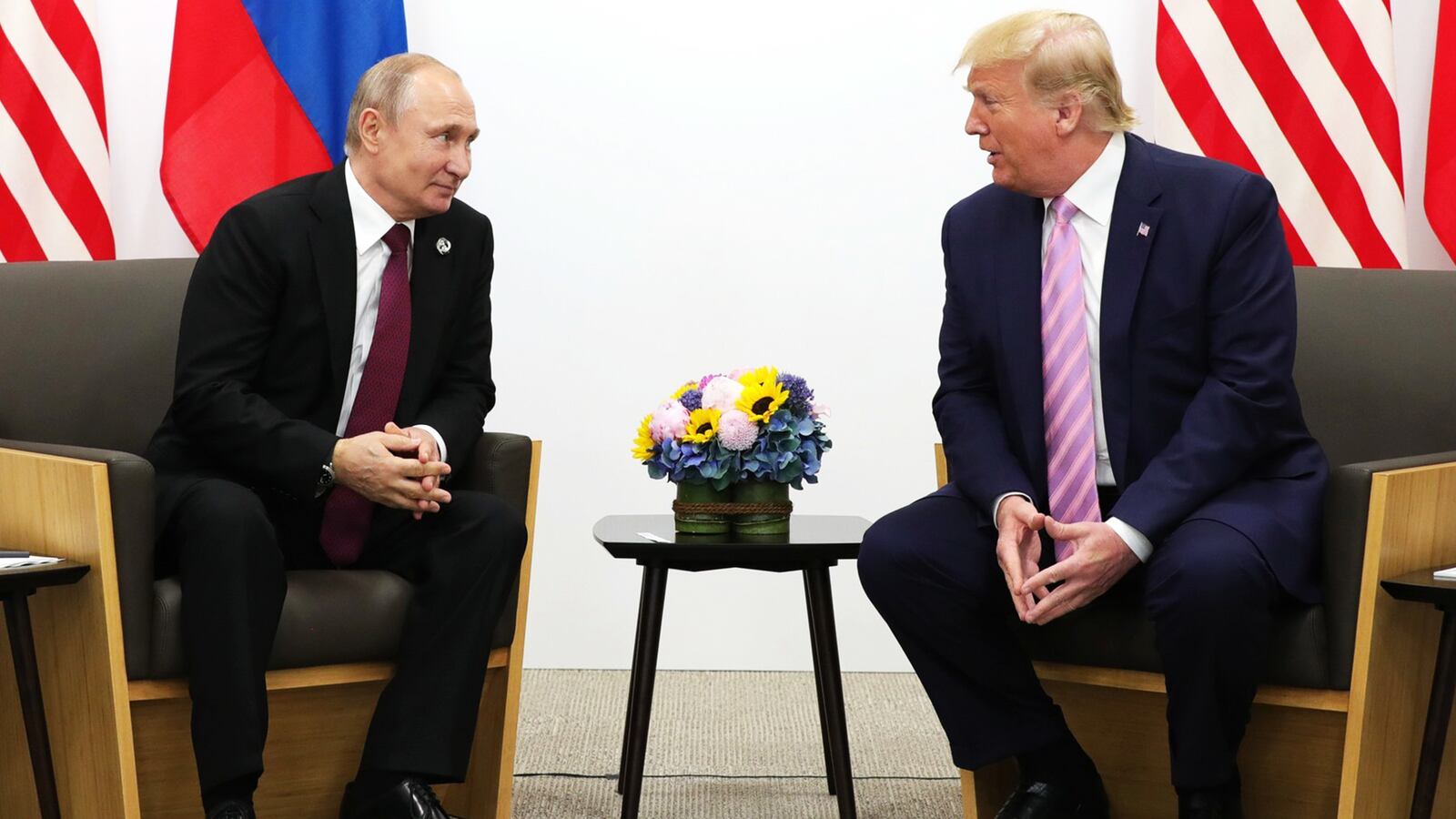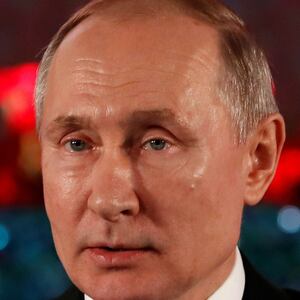On Aug. 18, the Senate Intelligence Committee released a 1,300-page report characterizing the involvement of Russian intelligence operatives with officials of the 2016 Trump presidential campaign as an “aggressive, multifaceted effort to influence, or attempt to influence, the outcome of the 2016 presidential election.” The report detailed the longstanding relationship between Paul Manafort, Donald Trump’s campaign manager, and a Russian intelligence operative named Konstantin Kilimnik, while also describing the links of other Russian intelligence figures to Trump family members, notably Donald Jr. and Jared Kushner, and to such Trump confidants as Roger Stone and Michael Flynn, briefly the president’s national security adviser.
As to be expected, President Trump immediately denounced the report as “a hoax” (never mind that it was authored by a Republican-controlled committee), while his inner circle adopted their usual stance on such matters, either staying mum or decrying the committee’s work as a tired retread of last year’s Mueller report. The real scandal, the president declaimed, was the deep state “witch hunt” against him that spurred these investigations in the first place.
If this latest chapter in the four-year Russiagate drama is unlikely to change many minds, at least one person has examined the Senate’s findings with both great interest and alarm. His name is Peter Sichel and, at the age of 97, he is the last surviving member of the early CIA that faced off with the Soviets at the start of the Cold War.
An escapee from Nazi Germany in the mid-1930s, Sichel served with the Office of Strategic Services (OSS), the United States’ wartime intelligence agency, during World War II. In October 1945, just months after war’s end, he was dispatched to Berlin to take charge of the local clandestine wing of an embryonic American intelligence outfit called the Strategic Services Unit, a precursor to the CIA. That posting placed Sichel at ground zero of the Cold War already beginning to take shape between the Soviet Union and its wartime Western allies, and gave him a front-row seat in observing precisely how the Soviets were taking over in Eastern Europe.
“Most people have this idea that they came in and grabbed all those countries by force,” Sichel explained, “but that is not true. In almost every case, they worked within the structure of the prewar political parties and just gradually coopted them.”
Through his contacts in Soviet-controlled eastern Germany, Sichel witnessed how the Soviets first coerced the local left and center-left political parties to join together, and to then accept the overall leadership of the embryonic German communist party. “They did this both by threats—if a political figure resisted, he could be threatened with arrest as a Nazi war criminal—and enticements. Remember, Germany was in absolute ruins at the time, so it didn’t take much—the offer of a car or an allotment of food—to bring people in line. Their ambition was to take over the political parties, but to pretend it was the will of the people.”
Sichel’s early 1946 report on the methods the Soviets were using to coopt the eastern German political parties was the first detailed examination of the phenomenon, one soon emulated in the other Eastern European nations under their military control. Once they comprised a sizeable minority in the government, the communist-led coalitions would then start taking control of key ministries, notably the police and internal security services, until they could take over outright. One of the ultimate beneficiaries of this approach, a Hungarian communist leader named Matyas Rakosi, called it “salami tactics,” the process of joining the existing political system and then slicing away at it until there was nothing left.
In this regard, one revelation in the Senate Intelligence Committee report stood out to Sichel. Contrary to most previous assumptions, Senate investigators found that the Russian intelligence campaign to gain influence with the Republican party began well before Trump emerged as a viable candidate, in keeping with Vladimir Putin’s scheme to help thwart a Hillary Clinton presidency however he could. This fit with the pattern the old CIA hand had seen in Eastern Europe.
“One great advantage the Soviets always had over us,” Sichel explained, “is that they played the long game. We thought in terms of quarters, whereas they thought in terms of years or even decades. They were opportunistic, willing to let matters gradually develop until the right political faction or right leader to support had emerged.”
This found echo in the years prior to 2016 in the series of ties that Putin, an old KGB man himself, fostered with right-wing political figures and fringe groups across the breadth of Europe. However much those ties may have appeared to run counter to Putin’s open nostalgia for the good old days of Soviet communist rule, they shared the common ground of ultra-nationalism.
This paid great dividends for the Russian ruler, for these same nationalist groups were at the forefront in their respective countries in calling for the dissolution or weakening of NATO and the European Union, two long-term Putin goals. For the same reason, the Russian leadership could only have been thrilled by Trump’s steady climb toward the Republican nomination. Far more than with any other Republican running for president, Trump’s xenophobic, America First rhetoric dovetailed with Putin’s own version, while Trump’s promise of a diminished American role on the global stage was the stuff of Russian fantasy. Little wonder that Putin’s minions would do anything in their power to help propel the hotel magnate and reality show host into the White House.
But of course, one can’t rely on jingoistic fraternity alone to achieve one’s goals, and limning the pages of the Senate Intelligence Committee report is the specter of another old KGB standby: kompromat, or blackmail. During his Cold War days in Berlin, Peter Sichel had to remain constantly vigilant against kompromat schemes targeting himself and his CIA colleagues, as well as western German political figures. “The KGB were absolute masters at it,” he recalled, “and they would use whatever they could get their hands on. A favorite was honey traps [or sexual entrapments], but bribes, favors, whatever they could find. And once they had their hooks into you, they owned you.”
Scattered throughout the Senate report is a litany of instances in which Trump’s associates left themselves open to Russian blackmail: Manafort’s many dealings with Kilimnik; the June 2016 Trump Tower meeting at which Donald Jr., Jared Kushner, and Michael Flynn met with Russian intelligence operatives who promised dirt on Hillary Clinton; the backchannel communications between Flynn, by then Trump’s national security adviser-designate, and the Russian ambassador.
“The key thing is that all of them then lied about it to investigators,” Sichel explained, “and that’s where the potential blackmail comes in. Imagine if the FBI hadn’t caught Flynn out, and he had remained in his post. The Russians knew he lied—I’m sure they taped all their communications with him—so they would have had him over a barrel forever.”
In this way, the old spymaster contended, the various investigations into Russiagate have actually been of great service to Trump.
“I know he doesn’t see it this way,” Sichel said, “but by having all this stuff brought out in public, it removes the blackmail threat. The smartest thing Trump could have done when all this started to break was to just come out and say, ‘Yes, it appears there was Russian involvement with my campaign, but that’s over with now, I’m the president, so let’s move on.’ But he didn’t do that, obviously. Perhaps there were reasons why he couldn’t.”
Even long-retired intelligence officers tend to be circumspect by nature—Sichel left the CIA in 1960—and while he left that last comment to dangle, his allusion seemed fairly clear. After all, what to make of an American president whose foreign policy initiatives have included weakening NATO and urging on the fracturing of the European Union. Who has repeatedly tried to reinstate Russia into the G-8 council of industrialized of nations, over the strenuous objections of America’s European allies, and who defends Putin’s propensity for killing his political opponents by stating, “I think our country does plenty of killing also.” And it’s not as if Trump’s obeisance to his Russian friend is a thing of the past. On Aug. 20, two days after the release of the Senate Intelligence Committee report, Putin’s principal surviving political opponent, Alexei Navalny, was left near death by a poison almost certainly administered by Russian intelligence agents. Even as European leaders have lodged protests against the Kremlin and demanded an investigation, President Trump has yet to say a word on the matter. Hardly an original thought, but did Sichel think the president himself could be hostage to Russian kompromat?
“Well, I couldn’t possibly say,” he replied, “because I think we’re still in the early stages of unlocking all that has gone on. What I can say is that the past four years have been very, very good for Vladimir Putin. And if Trump is reelected, the next four will be even better.”
Scott Anderson is the author of The Quiet Americans: Four CIA Spies at the Dawn of the Cold War—A Tragedy in Three Acts. He is also the author of two novels and four other works of nonfiction, including Lawrence in Arabia, an international bestseller that was a finalist for the National Book Critics Circle Award and a New York Times Notable Book. A veteran war correspondent, he is a contributing writer for The New York Times Magazine.







